The Nvidia GeForce RTX 5090, upon its release, disappointed many with its marginal improvement over the RTX 4090, especially considering its steep price. On the other hand, the Nvidia GeForce RTX 5070 Ti, while not significantly faster than its predecessor, offers a more affordable option, making it the most sensible choice in the Blackwell lineup for those not looking to splurge.
Priced at a base of $749, the GeForce RTX 5070 Ti stands out as an excellent 4K graphics card, effectively overshadowing the pricier RTX 5080. However, transparency is key: the RTX 5070 Ti I reviewed was an aftermarket model from MSI, priced at a hefty $1,099. This is actually more than the RTX 5080's $999 MSRP, assuming you can find either at their listed prices. If you manage to snag an RTX 5070 Ti at its base price of $749, it's likely the best option for most gamers, particularly those eyeing 4K gaming.
Purchasing Guide
The Nvidia GeForce RTX 5070 Ti becomes available on February 20, 2025, starting at $749. Be aware that this is the entry-level price, and various models may be priced much higher. At $749, it's a fantastic value, but its appeal diminishes as the price approaches that of the RTX 5080.
Nvidia GeForce RTX 5070 Ti – Photos
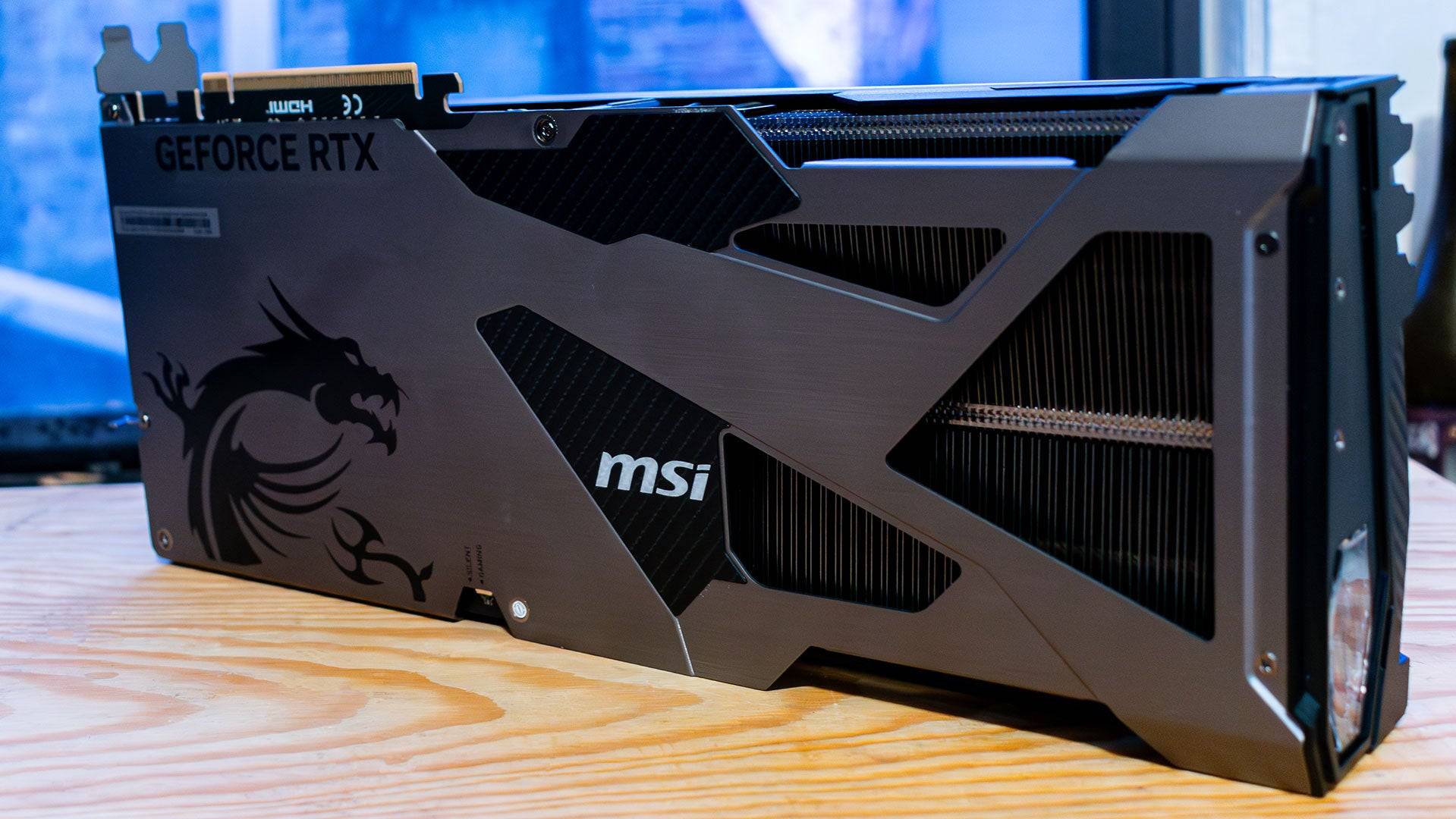
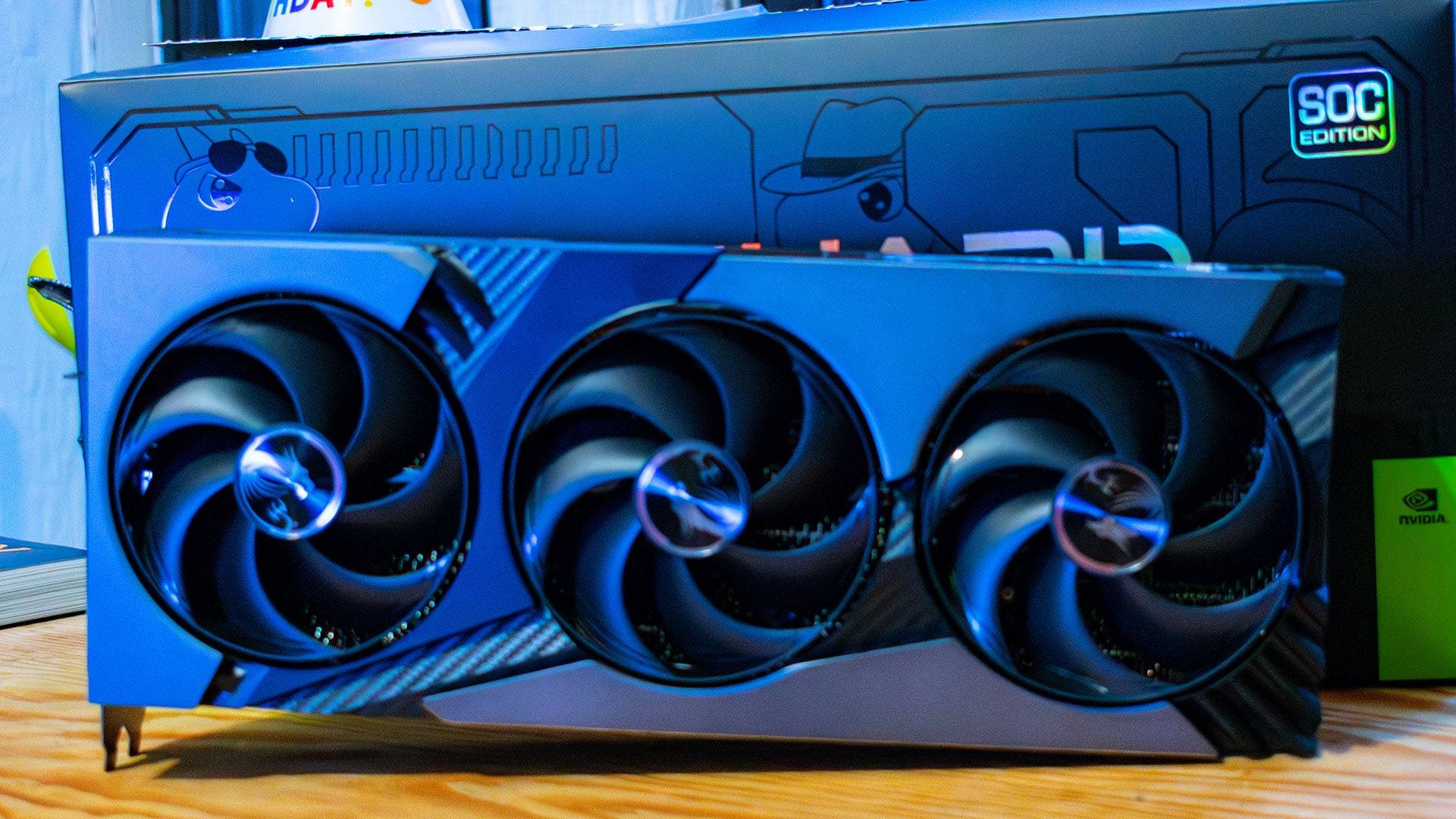 6 Images
6 Images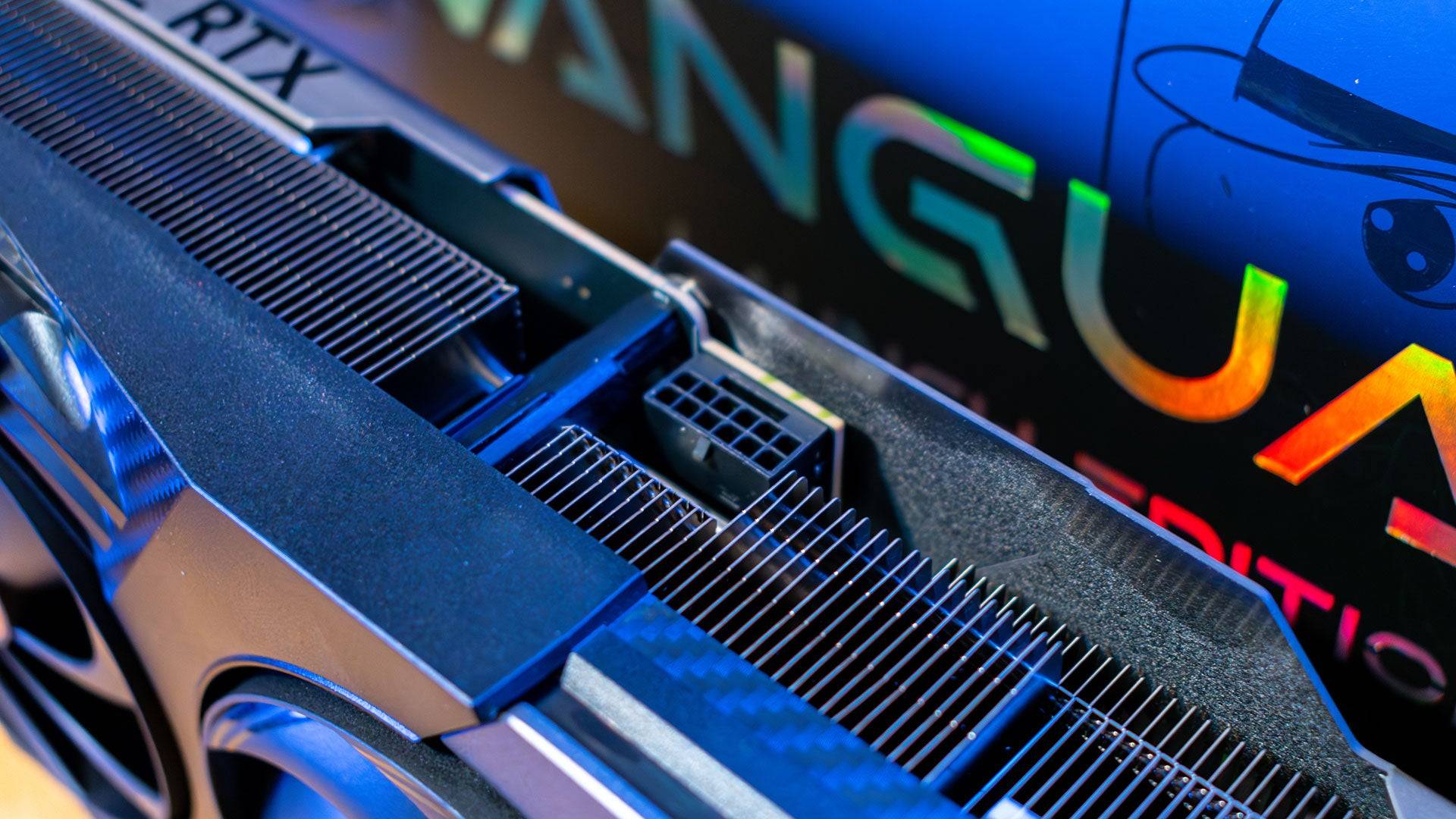
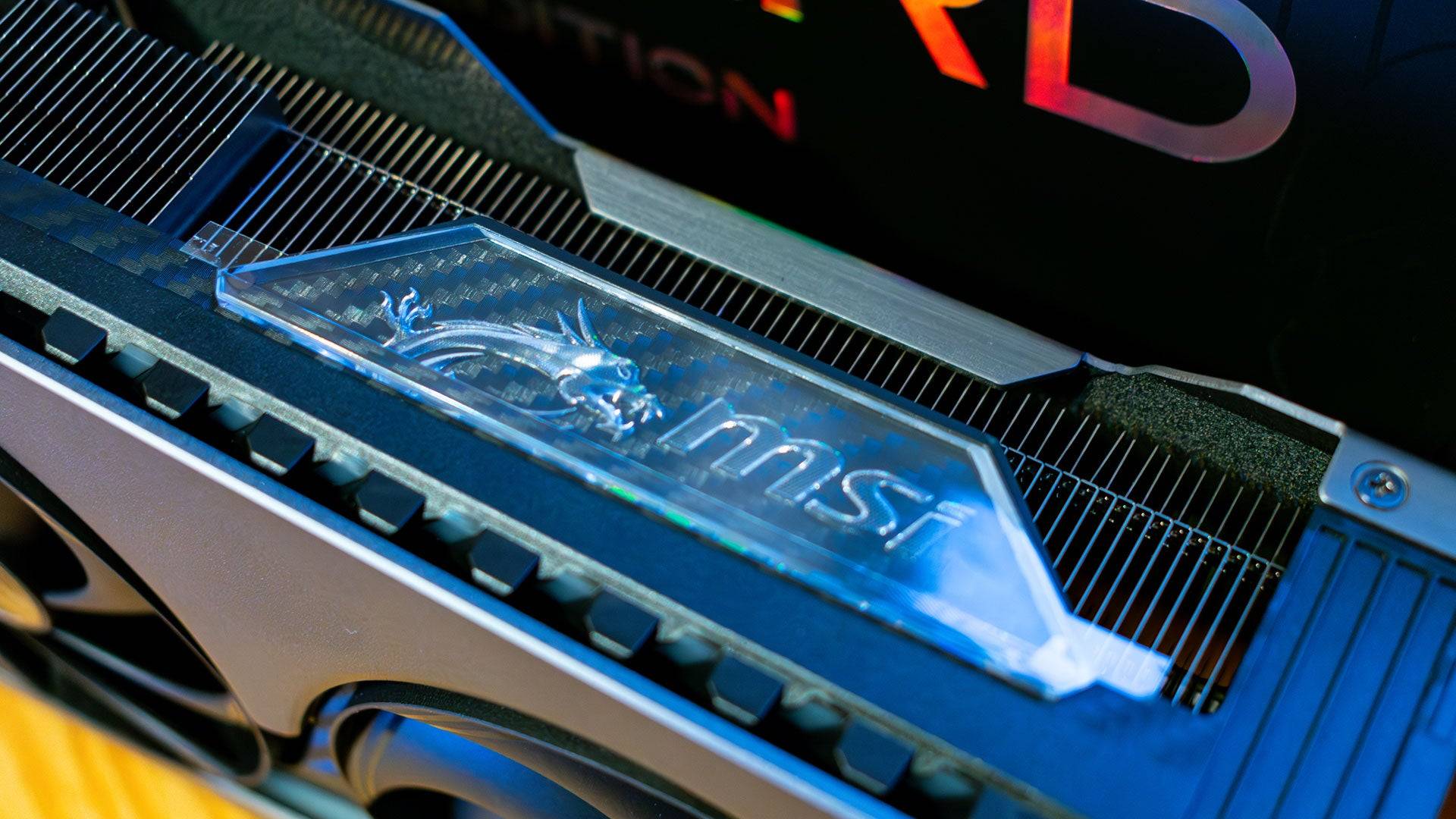
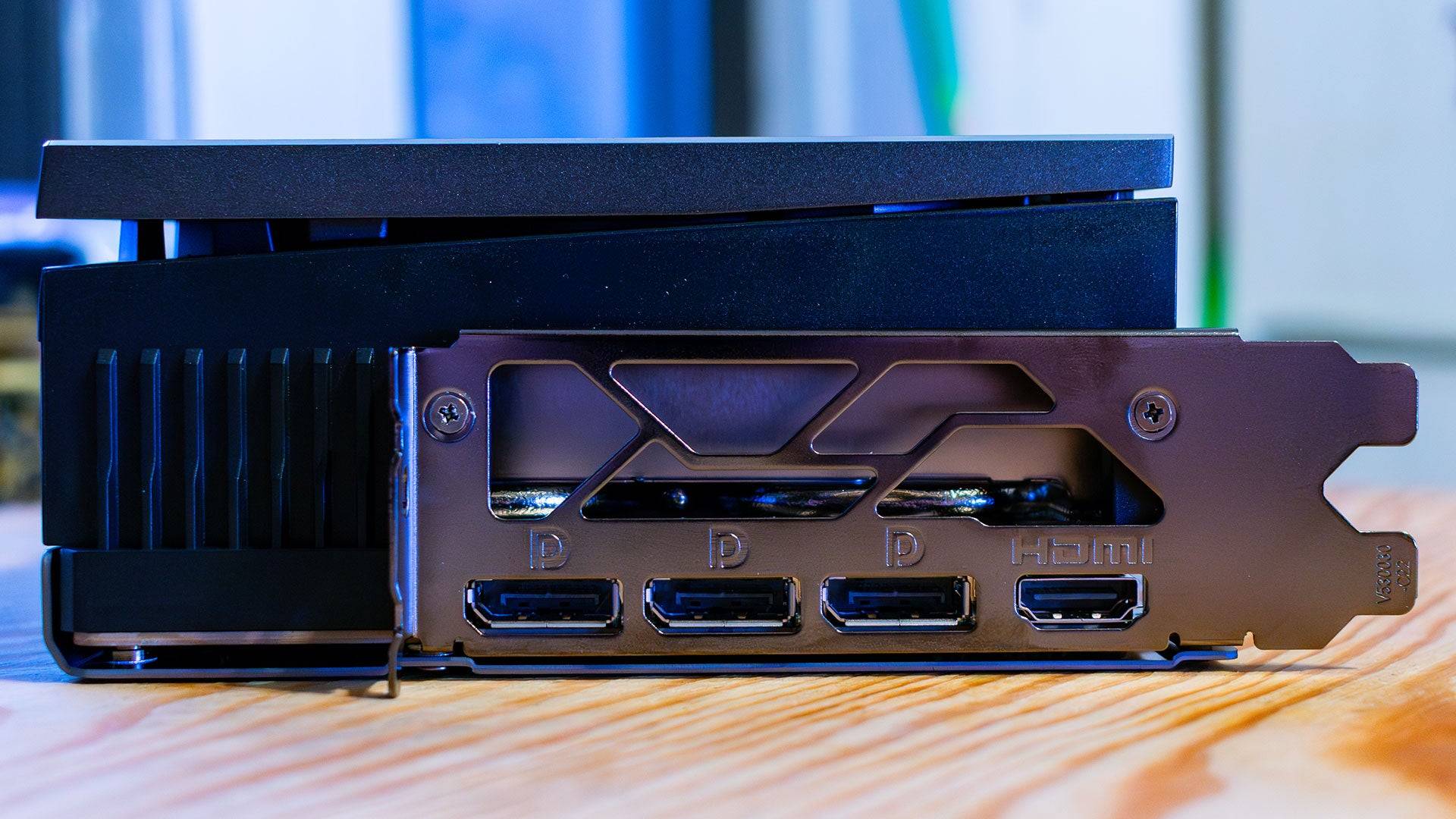

Specs and Features
The Nvidia GeForce RTX 5070 Ti marks the third entry in Nvidia's Blackwell architecture, which was initially developed for supercomputers powering AI models like ChatGPT. Nvidia has adapted this technology for its new gaming GPUs, maintaining a strong AI focus.
This card utilizes the same GB203 GPU as the RTX 5080, but with 14 of its streaming multiprocessors (SM) disabled, resulting in 70 SMs, 8,960 CUDA cores, 70 RT cores, and 280 Tensor Cores. It also features 16GB of GDDR7 RAM, though slightly slower than the RTX 5080. The Tensor Cores, integral to this card, are enhanced by Nvidia's reliance on AI upscaling and frame generation to boost performance.
The Blackwell architecture introduces an AI Management Processor (AMP), which streamlines workload distribution within the GPU—a task traditionally handled by the CPU. This improvement enhances the efficiency of processes like DLSS and frame generation. Nvidia has also updated DLSS to use a Transformer model, significantly improving image quality and reducing common artifacts like ghosting.
DLSS 4 introduces Multi-Frame Generation (MFG), which can produce up to three AI-generated frames for each rendered frame. While this increases latency, Nvidia's Reflex technology helps mitigate this issue.
With a 300W Total Board Power, the RTX 5070 Ti is slightly more power-efficient than its predecessors, the RTX 4070 Ti and RTX 4070 Ti Super. Nvidia suggests a 750W power supply, but for safety, an 850W PSU is advisable, especially for high-end models like the MSI Vanguard Edition.

DLSS 4 – Is It Worth It?
Although the RTX 5070 Ti offers improved performance over its predecessor, DLSS 4 and its multi-frame generation feature are the highlight of this generation. For gamers with high-refresh-rate monitors, this technology can maximize display performance, though it doesn't significantly reduce latency.
The Tensor Cores analyze each rendered frame, using motion vector data from the game engine to predict and generate new frames. This method, though not new, has been scaled up in MFG, potentially quadrupling frame rates. In practice, however, the increase is typically less dramatic.
In Cyberpunk 2077 with the Ray Tracing Overdrive preset and DLSS set to performance, the RTX 5070 Ti achieved 46 fps with 43ms of latency. Enabling 2x frame gen boosted this to 88 fps, with latency increasing to 49ms. With 4x frame gen, the frame rate jumped to 157 fps, though latency rose to 55ms, resulting in a 3.4x frame rate increase with higher latency.
In Star Wars Outlaws at 4K Max settings with DLSS on performance, the RTX 5070 Ti managed 67 fps. With 2x frame gen, this increased to 111 fps, and latency decreased from 47ms to 34ms due to Reflex. At 4x frame generation, the frame rate reached 188 fps, with latency rising to 37ms.
While multi-frame generation enhances smoothness on high-refresh displays, it doesn't improve responsiveness. However, the latency increases are minimal when starting from a high frame rate, ensuring a smooth gaming experience without noticeable lag or artifacts.
Nvidia GeForce RTX 5070 Ti – Benchmarks
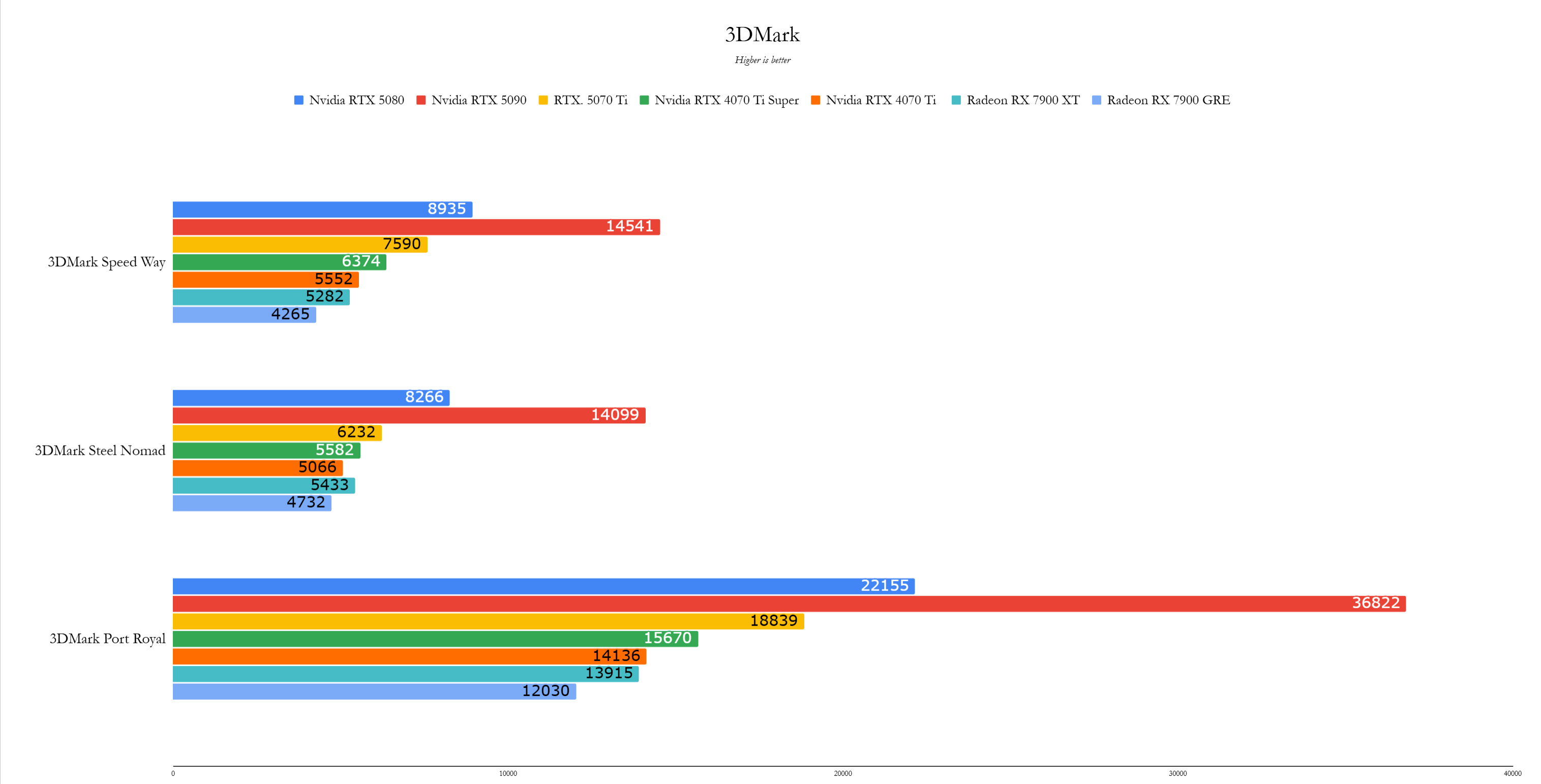
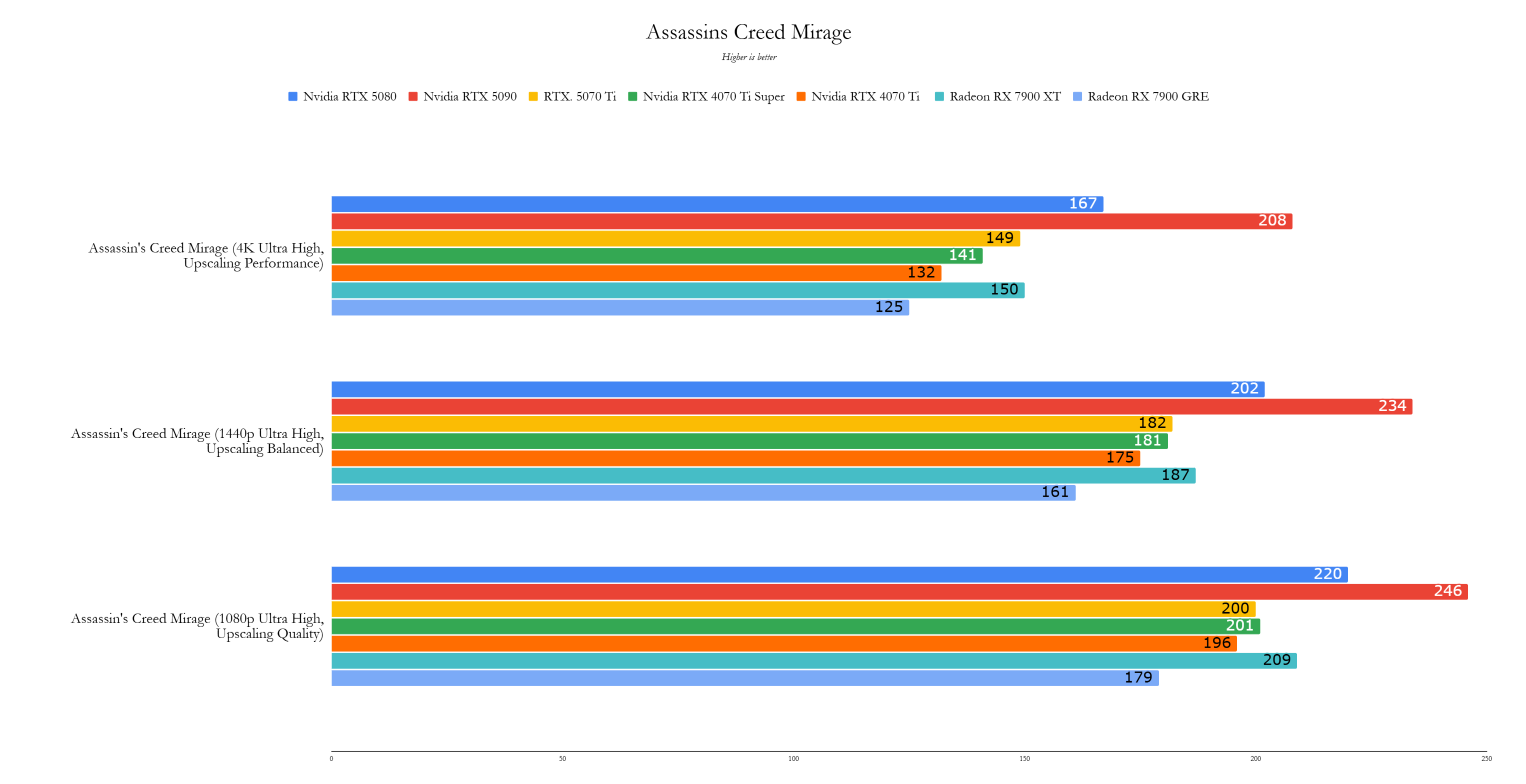 12 Images
12 Images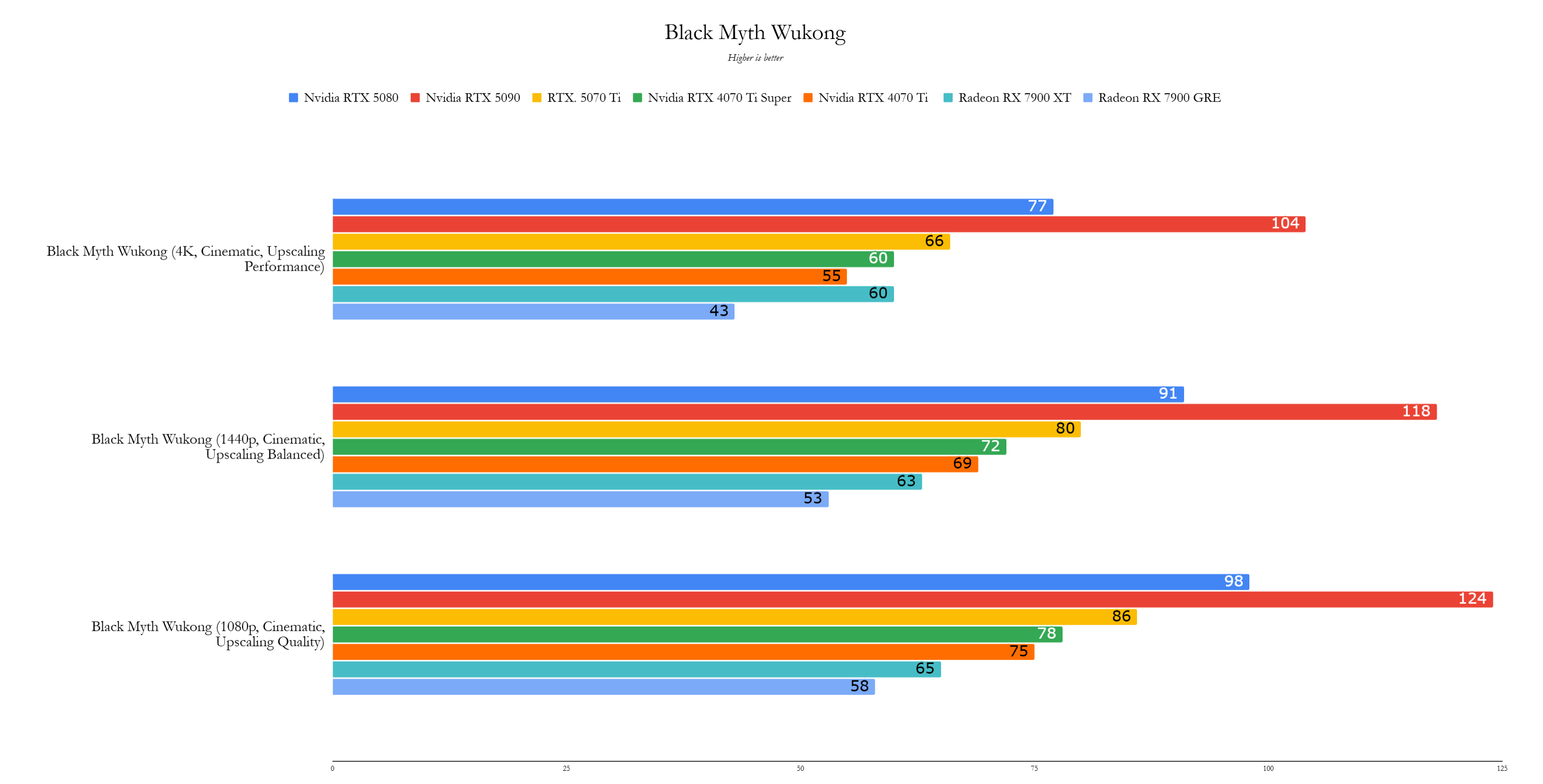
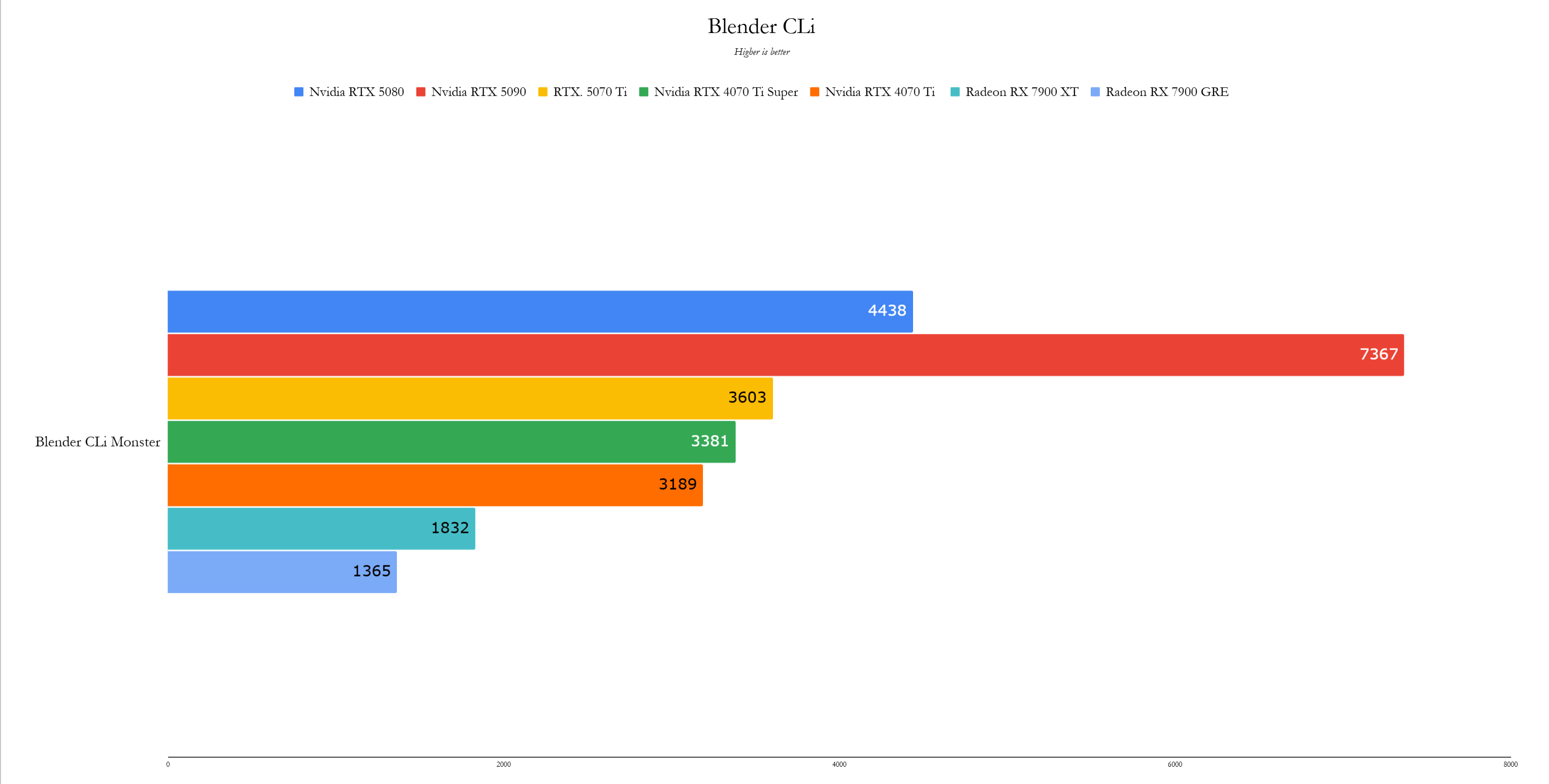
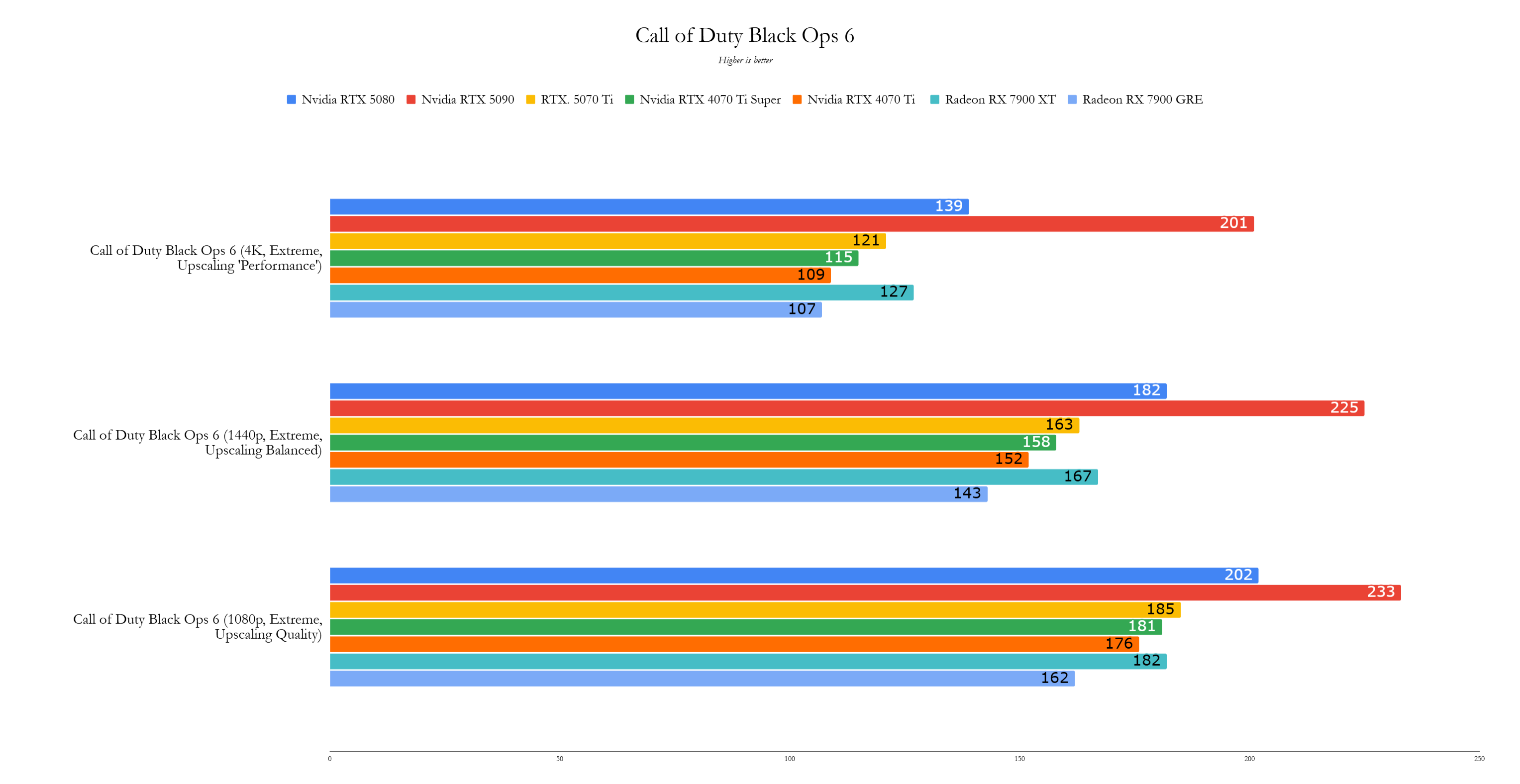
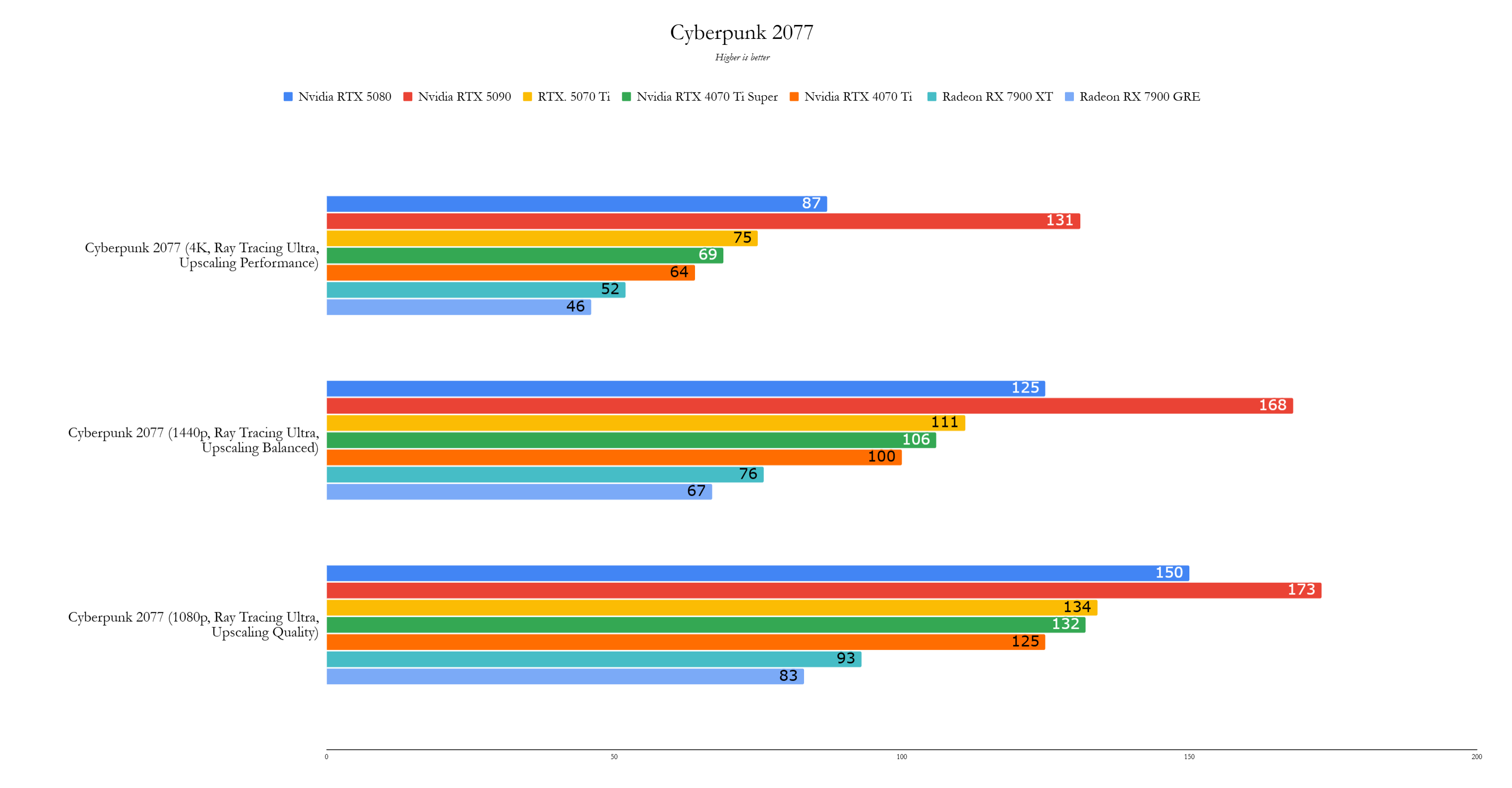
Performance
At 4K resolution, the Nvidia GeForce RTX 5070 Ti outperforms the RTX 4070 Ti Super by 11% and the RTX 4070 Ti by 21%, showcasing a more substantial generational improvement than the RTX 5080. This makes the RTX 5070 Ti the best value graphics card of this generation to date. It consistently delivered over 60 fps at 4K across various demanding games, including Black Myth Wukong and Cyberpunk 2077.
The test system used was equipped with an AMD Ryzen 7 9800X3D, Asus ROG Crosshair X870E Hero motherboard, 32GB of G.Skill Trident Z5 Neo RAM at 6,000MHz, a 4TB Samsung 990 Pro SSD, and an Asus ROG Ryujin III 360 CPU cooler. The MSI Vanguard SOC model was tested at stock settings to reflect general RTX 5070 Ti performance, with the review based on the $749 MSRP of the base GPU.
All games were tested using the latest drivers, with the RTX 5070 Ti on a prerelease driver. No frame generation was used, and upscaling was applied only in games supporting both DLSS and FSR.
In 3DMark Speed Way, the RTX 5070 Ti scored 7,590 points, significantly outperforming the RTX 4070 Ti Super's 6,374 and the RTX 4070 Ti's 5,552. In Port Royal, it achieved 18,839 points, demonstrating its potential for future growth as drivers and game optimizations evolve.
In actual gameplay, the RTX 5070 Ti showed varied results. In Call of Duty: Black Ops 6 at 4K Extreme, it achieved 121 fps, a modest 5% improvement over the RTX 4070 Ti Super. In Cyberpunk 2077, it led by 9% over the RTX 4070 Ti Super and 17% over the RTX 4070 Ti, maintaining 75 fps at 4K with Ray Tracing Ultra.
Metro Exodus: Enhanced Edition, tested without upscaling, saw the RTX 5070 Ti achieve 48 fps at 4K on the Extreme preset, slightly better than the RTX 4070 Ti Super's 45 fps. In Red Dead Redemption 2, it was 2% slower than the RTX 4070 Ti Super, with 113 fps compared to 115 fps.
Total War: Warhammer 3, without ray tracing or upscaling, showcased the RTX 5070 Ti's rasterization prowess, achieving 78 fps at 4K, a 15% improvement over the RTX 4070 Ti Super and 30% over the RTX 4070 Ti.
In Assassin's Creed Mirage, the RTX 5070 Ti managed 149 fps at 4K Ultra High, compared to 141 fps from the RTX 4070 Ti Super and 132 fps from the RTX 4070 Ti. Black Myth Wukong at 4K with the Cinematic Preset and DLSS at 40% resulted in 66 fps, a 10% improvement over the RTX 4070 Ti Super.
Forza Horizon 5 at 4K Extreme saw the RTX 5070 Ti achieve 152 fps, a 15% improvement over the RTX 4070 Super and 21% over the RTX 4070 Ti, outperforming the Radeon RX 7900 XT by 10%.
As we progress into an era where even mid-range graphics cards can handle 4K gaming, the Nvidia GeForce RTX 5070 Ti, at its starting price of $749, offers the best value for money, particularly for those with 4K displays. It not only provides a significant performance uplift over its predecessor but does so at a lower price than the $799 RTX 4070 Ti.








